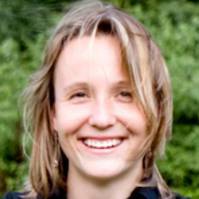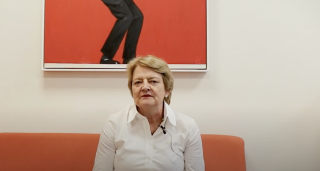We believe in an ecological economics that recognises that the economy is embedded in society and nature. Join our mission to build a new economic paradigm and sustainable wellbeing for all.
About the course
Creating a sustainable future for humans and the rest of nature is going to take major transformations of our economic paradigm and societal institutions.
The Prosperity, People and Planet MSc takes an ecological economics and whole systems perspective, and is for anyone interested in the world, how it works, and how we can make it a better place for everyone to live in.
What is the meaning of ecological economics to us at the UCL Institute for Global Prosperity? We recognise that the economy is embedded in society and the rest of nature, that our complex interconnected systems can only be understood and managed from this perspective, and that problems cannot be solved in isolation from society or from the rest of nature.
In our teaching, we use modern theory and methods, and an engaged, interactive teaching style to co-create solutions to the range of problems facing humanity today, from climate change to achieving the UN Sustainable Development Goals (SDGs).
If you want to learn from the best thinkers in the world and help solve the most pressing problems of our time, apply now to study with us on the Prosperity, People and Planet MSc.
Course structure
- Read more about our core modules
- Prosperity, people and planet: Conceptual frameworks
- Prosperous and inclusive planetary futures
- Research methods for natural and planetary prosperity
- Atelier: Prototyping natural prosperity
- Dissertation in People, Planet and Prosperity
- Read more about our optional modules
- Pathways to prosperity 1: Global loegacies
- Pathways to prosperity 2: Society and livelihoods
- Collective problem solving for inclusive prosperity
- Debt, finance and prosperity
- China and global prosperity
- Urban futures and prosperity
- Social theories of prosperity
- New economics of prosperity
- Prosperity from below: The informal, the illicit and the popular
- Read more about the Dissertation in People, Planet and Prosperity
All students undertake an independent research project leading to a dissertation (12,500 words), which may be fieldwork- or literature-based. The dissertation is flexible to different research approaches and methods. This is an opportunity for you to demonstrate your command of the relevant literature, research design and methods, as well as capacity for analysis and contribution to research. You will also be required to prepare a shorter article at publication standard (1,500 words).
More details of these modules can be found in the UCL module catalogue.
Please note that the course structure and list of modules given here is indicative. This information is published a long time in advance of enrolment and module content and availability are subject to change.
Who you'll be learning from
You’ll be learning from our team of academics who are working at the cutting-edge on some of the most pioneering research programmes across the world. Our teaching and research have already brought about real-life change to policy and practice and will continue to do so long into the future through our Institute’s strong relationships with governments, businesses, and communities around the world.
The Prosperity, People and Planet MSc will be led by:

We cannot deal with climate change as a problem that is solvable without transforming our economies and societies to ones with a new vision of prosperity and sustainable wellbeing.

“The future we live in is up to us. Who we elect, how we consume, and other daily decisions allow us to choose the future we create.
Bringing about change in real terms
Our Prosperity, People and Planet MSc will give you the opportunity to engage with some of these real and tangible changes that we have made across the world to date. From our work on wellbeing indicators and “beyond GDP” in collaboration with the European Commission, to the Agrifood for Net Zero Network working to implement regenerative agriculture in the UK and globally, students have the unique opportunity to be part of some of the global and national initiatives and projects we’re involved in, solving challenges and improving long term human wellbeing.
Other projects include our contribution to valuing natural capital and ecosystem services; to designing societal therapies to overcome our addiction to growth; collaborating on key policies with a range of local government and global initiatives such as the Southwark Land Commission in London, where we developed policy that means land across the borough will be developed for the benefit of local people, to the Think7 (T7) initiative at the 2022 G7 summit in Germany, where we contributed to policy on social cohesion, economic transformation and open societies. From our work with the UK’s House of Commons enquiry on aligning the economic goals with environmental sustainability, which changed the way that the UK now reports its quarterly GDP figures, to our ambitious policy and practice-led initiatives, such as the Citizen Science Academy, a community-based, research training scheme to empower communities to lead change; our global FastForward2030 network of impact entrepreneurs who are addressing the Sustainable Development Goals; and our three research Prosperity Co-Labs (PROCOLs) in the UK, Lebanon and Africa.
Additionally, some of our modules include short, one-day field trips which take place locally. Following approval from the programme leader, you can also undertake fieldwork, both in the UK or elsewhere in the world, as part of your dissertation.
Your future career
After graduating, our Prosperity, People and Planet MSc students can go on to work in the public sector, government, private sector, NGOs, education, and a multitude of other industries and sectors.
Studying with us means you will have the opportunity to join the Institute for Global Prosperity community. We have a global network of alumni, partners and collaborators all making positive change in the world, particularly in major roles in government, business and the third sector. Throughout the academic year, we host careers and alumni events, allowing current students to engage with alumni and to build on this growing network of changemakers.
After graduation, we expect our students to take up a broad range of roles including as ecological consultants, policy officers and social research officers. We also envisage our students going into careers in research and PhD study.
Fees and funding
Information about tuition fees for the Prosperity, People and Met MSc is available on the UCL graduate prospectus.
There are a range of funding opportunities available to help you with your studies. For more information, visit:
- IGP's guide to funding your study at the Institute for Global Prosperity
- UCL's guide to funding your studies
 Close
Close


